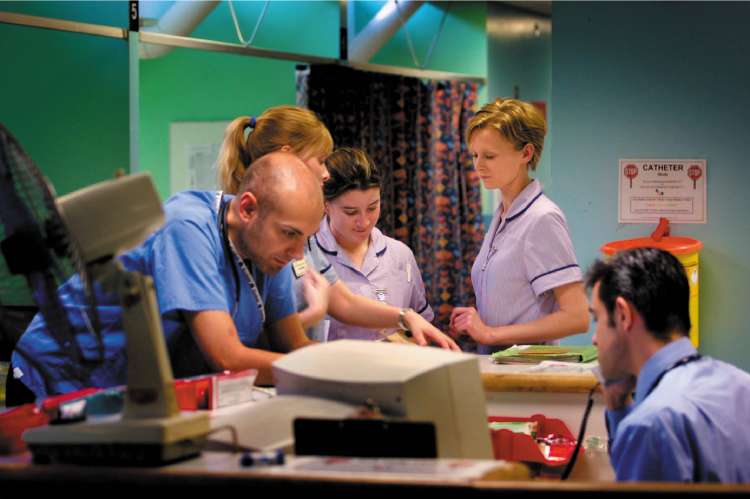Shake-up of hospitals will open door to McDonald's sponsorship

Your support helps us to tell the story
From reproductive rights to climate change to Big Tech, The Independent is on the ground when the story is developing. Whether it's investigating the financials of Elon Musk's pro-Trump PAC or producing our latest documentary, 'The A Word', which shines a light on the American women fighting for reproductive rights, we know how important it is to parse out the facts from the messaging.
At such a critical moment in US history, we need reporters on the ground. Your donation allows us to keep sending journalists to speak to both sides of the story.
The Independent is trusted by Americans across the entire political spectrum. And unlike many other quality news outlets, we choose not to lock Americans out of our reporting and analysis with paywalls. We believe quality journalism should be available to everyone, paid for by those who can afford it.
Your support makes all the difference.Firms such as McDonald's and Virgin could be allowed to sponsor NHS hospital wards under radical plans announced by the Government to allow sponsorship of health services and create a new era of open competition between hospitals.
Private companies will be allowed to create some "brand awareness" such as a logo on hospital property but they would not be allowed to gain a "commercial advantage", meaning a firm such as Durex would not be allowed to sponsor a sexual health unit, but it could sponsor another type of clinic or a hospital department.
The plans announced by Ben Bradshaw, the Health minister, came as part of a drive to give NHS patients more choice over the private or NHS hospitals in which they are treated.
Patients are to be allowed a choice of hospitals across England from 1 April, including private hospitals that are NHS approved. At the moment, the choice is limited to local providers but the NHS will be able to "shop" for health care across the country.
NHS patients who opt for treatment in a private hospital will not have to pay for their care, provided it is covered by NHS contracts.
Hospitals are also to be allowed to promote their own services to compete with each other for "custom" within the NHS. The code says there will be no official cap on how much they can spend on advertising their services to patients.
"Providers will be expected to recognise the potential effect on the reputation of the NHS of disproportionate expenditure on promotional activity.
"The cost of TV or cinema promotion is very unlikely to be justifiable."
Hospitals could promote areas of good patient care, such as low rates of the potentially lethal hospital-acquired infection MRSA, but will not be able to indulge in discrediting their rival NHS hospitals.
"Comparative claims are permitted in the interests of vigorous competition and public information. They should neither mislead nor be likely to mislead," says the code.
Hospitals will also be able to send direct marketing to their patients and no marketing "should cause fear or distress without good reason". The code added: "Marketing communication addressed to, targeted at or featuring children should not exploit their credulity, loyalty, vulnerability or lack of experience."
Hospitals will be able to use testimonials as long as people are not paid for them. Mr Bradshaw said: "Choice is fundamental to the delivery of a personalised NHS. People would like to have more control and be more involved in the decisions about their illness and treatment. More choice will also help drive up quality and standards across the NHS."
However, many Labour MPs are hostile to creating competition within the NHS and the unions representing health workers are campaigning against what they call the "privatisation" of NHS services.
Join our commenting forum
Join thought-provoking conversations, follow other Independent readers and see their replies
Comments